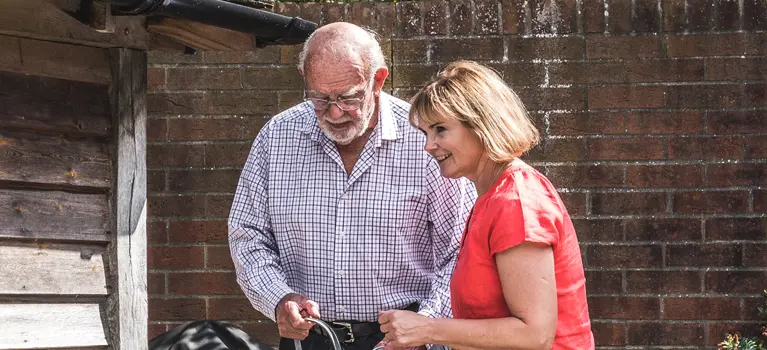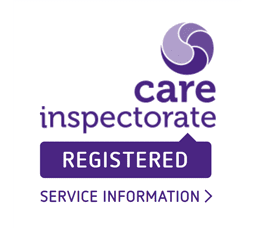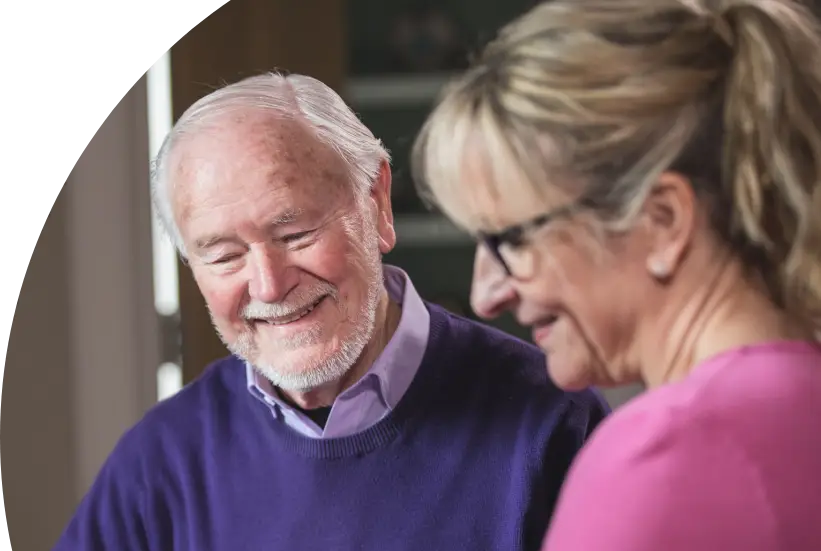
Live-in care by The Good Care Group
With over 10 years of experience, The Good Care Group provides high-quality live-in care, keeping clients safe and happy in the comfort of their own homes while improving their overall health and well-being. We offer highly personalised, one-to-one care that reflects individual needs, choices, wishes and social preferences, allowing clients to maintain their independence and enjoy their preferred lifestyle.
CQC and CI regulated care in England and Scotland
Our exceptional quality of care has earned us an ‘Outstanding’ rating from the Care Quality Commission (CQC) in all five measures in England, which include safe, effective, caring, responsive and well-led. We are one of less than 1% of live-in care providers to receive this rating which gives you peace of mind when placing your trust in us.
In Scotland, we are rating of 6 (Excellent) for quality of care and support and 5 (very good) for staffing, management and leadership from the Care Inspectorate (CI).
What is live-in care?
Live-in care is when a carer comes and lives with you in your home to provide you with around-the-clock care, companionship and support so you can live a better quality of life at home.
Live-in care is a direct alternative to moving into a care home, as it allows you to receive support for mild and complex health needs without the stress and upheaval of leaving your beloved home.
At The Good Care Group, our professional carers can provide a range of live-in home care services including:
Personal care
This includes task-oriented care, such as bathing, dressing and continence support, as well as self-esteem care – including nail and hair grooming.
Companionship
Our carers are matched to your values and interests so that you’re supported with emotional and psychological needs.
Managing medications
Professional carers use an electronic system for proactive medication management, which is closely monitored by care managers.
Planning & cooking meals
Your carer will plan and cook meals according to your choice, preferences and nutritional needs, all served at a time that suits you.
Pet care
Carers will happily support looking after your pet, including dog walking, cleaning their homes and providing regular food and love.
Trips around the community
Staying connected to your community is great for you well-being, which is why our carers will support you to access activities you enjoy.
Specialist nurse-led care
Led and supported by our specialist Consultant Nurse, our nurse-led care includes delegated health care tasks for those with complex health needs.
Domestic tasks
Light housework, watering your plants and taking the bins out – keeping your house to the standards of cleanliness and tidiness you always have.
Ensuring safe mobility
Our occupational therapist offers expert advice on equipment and home adaptations to improve safe movement and minimise falls in your home.
What is 24-hour care?
For complex care needs, 24-hour care is round-the-clock support delivered by an experienced team of carers.
For 24-hour care at home, a team of live-in carers will typically provide you with around-the-clock care – one who will care for you during the day, and another who will care for you during the night. You may also have wraparound carers who will provide support during your live-in carers’ breaks, so that you are never without the assistance you require.
Live-in care includes 24-hour care, but also covers those who need care for 6-12 hours during the day without any overnight care requirements.
Meet our head of live-in care

Rebecca Malone-Robertson
Rebecca Malone-Robertson is head of live-in Care for The Good Care Group, working with regional care teams, carers, clients and their families to ensure the very best live-in care is delivered. She is a registered nurse with the Nursing and Midwifery Council and has over 20 years’ experience in the health care industry, specialising in the care of older adults.
How do I arrange live-in care?
To find out how we can support you or a loved one, simply follow our three simple steps below:

1. Speak to our team
Our dedicated client services team can answer all of your important care questions. Call us on 0203 728 7577.

2. Free care assessment
Meet your local care manager to discuss your needs and preferences in detail during your free care assessment.

3. Outstanding care at home
Meet your carefully matched professional carers who will provide you with high-quality care at home.
1. Speak to our team
Our dedicated client services team can answer all of your important care questions. Call us on 0203 728 7577.
2. Your care assessment
Meet your local care manager to discuss your needs and preferences in detail during your free care assessment.
3. Outstanding care at home
Meet your carefully matched professional carers who will provide you with high-quality care at home.
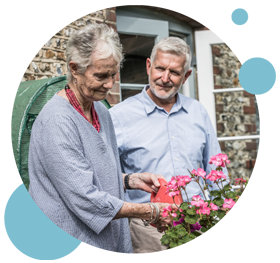
Leading the way in the specialist care of conditions
Our Specialist Care Service includes nurse-led care and occupational therapy-led care for clients with ongoing or complex medical needs. Both services are led by our in-house clinicans including our Consultant Admiral Nurse and Occupational Therapist. Our care teams work closely with our experts to consistently improve clients’ health outcomes.
Our highly-trained live-in carers provide specialised care and support for those living with conditions such as dementia, Parkinson’s or multiple sclerosis. We aim to enhance their quality of life and enable them to live well in the comfort of their own homes.
We provide support for conditions and care needs such as:
Meet our in-house experts
The Good Care Group’s Specialist Care Service combines the best of nursing and occupational therapy expertise to achieve the desired outcomes for clients living with temporary or ongoing complex care needs.

Dr Jane Pritchard,
Consultant Admiral Nurse

Jackie Cooper,
Occupational Therapist
Please get in touch to arrange your live-in care assessment
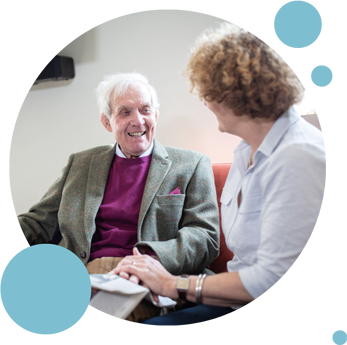
Cost of live-in care
Live-in home care costs are comparable to care homes and often less. In care homes, nursing care can increase costs. With live-in care, you can keep your home, and fees only cover support, not room and board.
The cost of live-in care from The Good Care Group starts at £1,095 per week for part-time care and from £1,395 per week for full-time care.
Live-in care is a cost-effective option for couples, as care homes charge double for two bedrooms, while live-in care only incurs a nominal cost for two people at the same address. The cost of couples live-in care from The Good Care Group starts at an additional £395 per week on top of the single live-in care fee.
Live-in care can be more cost-effective than domiciliary care for individuals with complex medical needs. The total cost to provide hourly care to someone living with high or complex needs is likely to exceed the price of an inclusive live-in care service.
Why choose The Good Care Group for live-in care?
We have been providing high-quality, live-in care to individuals and families in England and Scotland for over 10 years. At the heart of our award-winning service is enabling people to live independently in their own home with an improved quality of life. Our approach to care at home means our clients can achieve improved health and well-being. Families benefit from peace of mind and reassurance that their loved one is receiving the very best care and support.

We are the only dedicated live-in care provider in England to achieve an ‘Outstanding’ rating in all five measures by the Care Quality Commission (CQC). In Scotland, our service has achieved the highest rating of 6 (Excellent) by the Care Inspectorate (CI).

A Specialist Care Service led by in-house experts Dr Jane Pritchard and Occupational Therapist, Jackie Cooper, enabling those with complex care needs to receive high-quality care at home.

More award wins than any other home care provider during the past 10 years for our service, training programmes and culture, including winners of a home care award and national dementia care award.

Our carers complete an enhanced training programme, developed by in-house clinicians and experienced trainers, as well as being endorsed by Age UK.

A team of in-house clinicians who are experts in dementia home care, including admiral nurse, Dr Jane Pritchard. All of our carers also receive dementia care training, including strategies to support clients and their families.

We are not a care agency; this means we fully employ, train and supervise our care staff. We are also monitored by the regulatory bodies for care – the CQC in England and the CI in Scotland – which agencies are not.
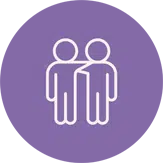
Better pay, benefits and conditions than the industry average means our carers stay with us for much longer – resulting in high-quality care for clients with minimal disruption.

Measurable health outcomes reviewed annually, including reducing hospital admissions and training carers to use UTI kits – keeping clients living in their own homes for longer.

Our online carer community system allows clients, families and care teams to access up-to-date information on care delivery and the safe management of risks, including medication administration.

A regionalised service led by local care managers across England and Scotland, supported centrally by our team round the clock.

Our focus on matching you with the right carers ensures everyone is happy and your physical and social needs are met. Your care team really gets to know you and your requirements, giving you consistency of care.

Only 2% of prospective carers pass our recruitment process, including a situational judgement test. All of our carers have a DBS check and must have previous care experience – over 50% have 12 months’ care experience when they join us.
Benefits of live-in care vs residential care homes
| Live-in home care | Residential home care | |
| One-to-one care delivered by the same carer that you can form a relationship with. | ||
| A uniquely developed, highly personalised plan of care designed to meet your needs whilst addressing how you wish to live your life. | ||
| Couples home care available for two people who require support and want to stay at home. | ||
| Improved health outcomes – fewer falls, lower rates of infection and hospital admissions. | ||
| Carer can cook for you or with you if you prefer. You can also choose what you’d like to eat. | ||
| No need to move out of your much-loved home, with all the upset and disruption that brings. The family home can then be kept in the family, instead of being sold to fund care home fees. |
